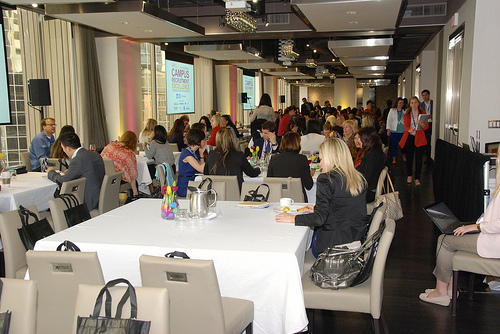Bridging the Gen Z Gap: Understanding how to help recent graduates successfully transition into the workplace.
Throughout my 15+ years as a recruitment professional, I’ve always had a special place in my heart for helping new grads transition into their first corporate role. A deep desire to help them land their first job was a result of my own experience struggling to find my way in the world. I want to share the personal wisdom I gained and help them successfully grow their careers through mentoring and coaching support.
What have I observed?
The challenges new graduates face have not really changed from Gen X, but in the last few years, I’ve observed, firsthand, a much larger disadvantage for Gen Z during this major life transition. Gen Z is often confused as an extension of Millennials, but they are distinctively different. They are the first generation to never know a world without wifi, social media, and instant gratification. They were part of a democratic school system and households, where there was no traditional hierarchy of power and consequences, everyone was a winner and there were no losers or failures. Probably the most impactful trend was that they were a generation that was highly overscheduled and constantly stimulated, not allowed to be bored or unhappy. Boredom is critical for imaginative play/thinking, and learning to deal with negative emotion, is an important psychological coping skill. The absence of learning to manage emotions and stretch brain muscles is likely the root cause for why overall, Gen Z struggles with much higher levels of anxiety and depression. They lack the resiliency to face the world that is run by Millennials, Gen X and Boomers.
What can educators and employers do to help bridge this gap?
First, understand, it is not optional. We must help Gen Z with this transition into the workforce, because having them tough it out (as we might have had to), will lead to a higher level of mental illness, in a generation where mental illness is already significantly higher1 and a future workforce that is not as productive. Second, seek to understand their perspective and then give them the support and tools to empower them.
For employers, onboarding is important. On-going clarity of your expectations of them, and how they can own their own development and successfully navigate their career, is even more important. They likely expect that they will be given continuous direction and rewards, and you will drive their career for them – so showing them they own their success and happiness is step one.
For educators, provide insights while they are still in a learning environment, on how to prepare for this critical life transition. Soon-to-be grads are on the brink of one of the most challenging transitions they will face.
So, what is the secret sauce?
Interestingly, the ‘secret sauce’ would likely help all of us be happier, in a world where we all spend less time being present than we should. To fully accept the present moment as it is, without judgement, is the foundational skill I teach new graduates through learning mindfulness. It is the basis from which all else will follow. Next, I help guide them in clarifying their purpose and values from which they will decide their goals, and where to focus their attention and talents. Research reinforces that understanding personal values is paramount for career success; the least committed leaders are those who understand company values, but not their own.2 So, first, learn to engage fully with the present moment, and then integrate purpose and values into being in all aspects of their job search (interview, personal brand), job performance, and career development. A natural consequence of mindfulness and purposefulness is happiness – in both our professional and personal lives. Happiness is self derived, rather than an expectation for others to provide. Moreover, mindfulness helps build resiliency, so that when failures or disappointments happen, they won’t be devastating.
What’s in it for me?
Once Gen Z is thriving and finding the right ‘fit’ in a company and on a purposeful path, we will start to see a big reward ourselves. They will overperform, as they are driving to be a part of something bigger than themselves. They will be extremely loyal, and unlike Millennials, will want to stick around for the long haul with your company. They will give back and want to mentor others recent graduates entering the business. As you can see, the dividends greatly outweigh the investment. It really comes down to your willingness to help this generation bridge the gap!
1 American Psychological Association – March 15, 2019, Mental health issues increased significantly in young adults over last decade
2 James M Kouzes and Barry S Posner, The Leadership Challenge 4th edition
Lana Burton is a talent acquisition executive and founder of Be META, an organization that helps Generation Z to recognize and realize their potential.
As a working mother of two, she knows how to connect the intimate needs of others and still make time to do the work that we all need to do within.
Connect with Lana on LinkedIn or via email at Be_META@outlook.com.



